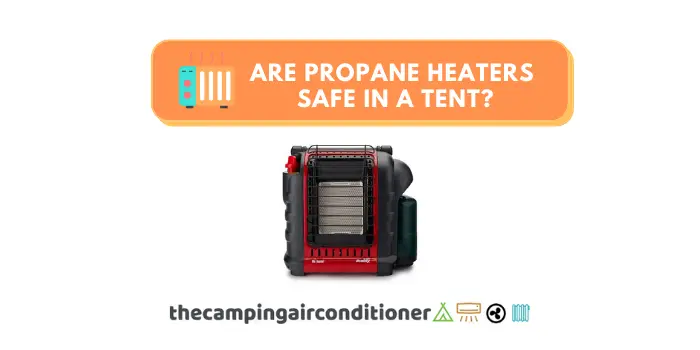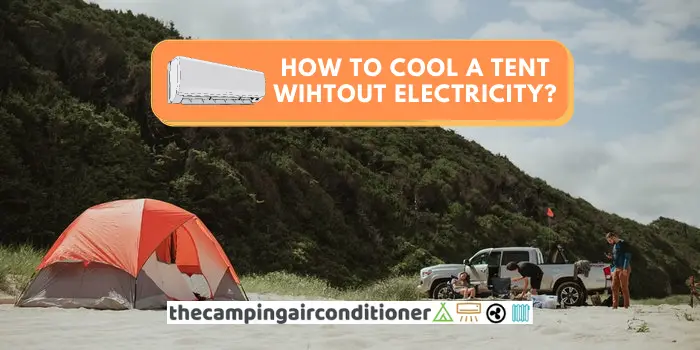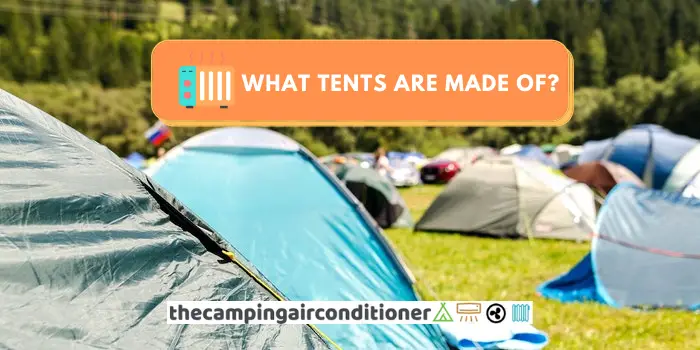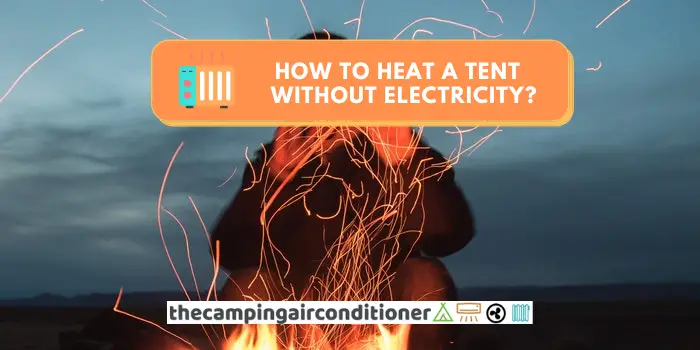Tent heaters can save your camping trips during winter. They are portable, safe, and can offer excellent heating outputs for cold nights.
However, there are some important implications that you should be aware of before using them inside your tent: safety concerns and water condensation.
We detailed some essential safety tips in this article and elected the safest tent heater on this one, and now you should be confident and know how to handle them.
However, another common question raised by many campers is: will a heater stop condensation in my tent?
The answer is: it depends on the model that you use. Overall, gas heaters tend to release moisture in the air after combustion (and increase humidity levels), whilst electric heaters don’t. Hence, gas heaters will entice condensation and electric heaters will only cause condensation in environments where high humidity prevails.
This article will detail the secrets around tackling tent condensation with your heater – keep reading it and discover the best tips to eliminate water droplets.
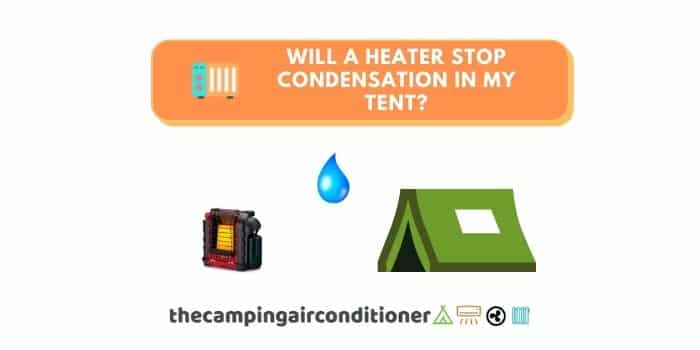
What is condensation and how it happens in tents?
Condensation refers to the process by which water vapor becomes liquid. It happens when vapor in the warm air meets a cool surface, creating water droplets.
The condensation process might occur at any time of the year, and it can take place inside or outside your home or tent. .
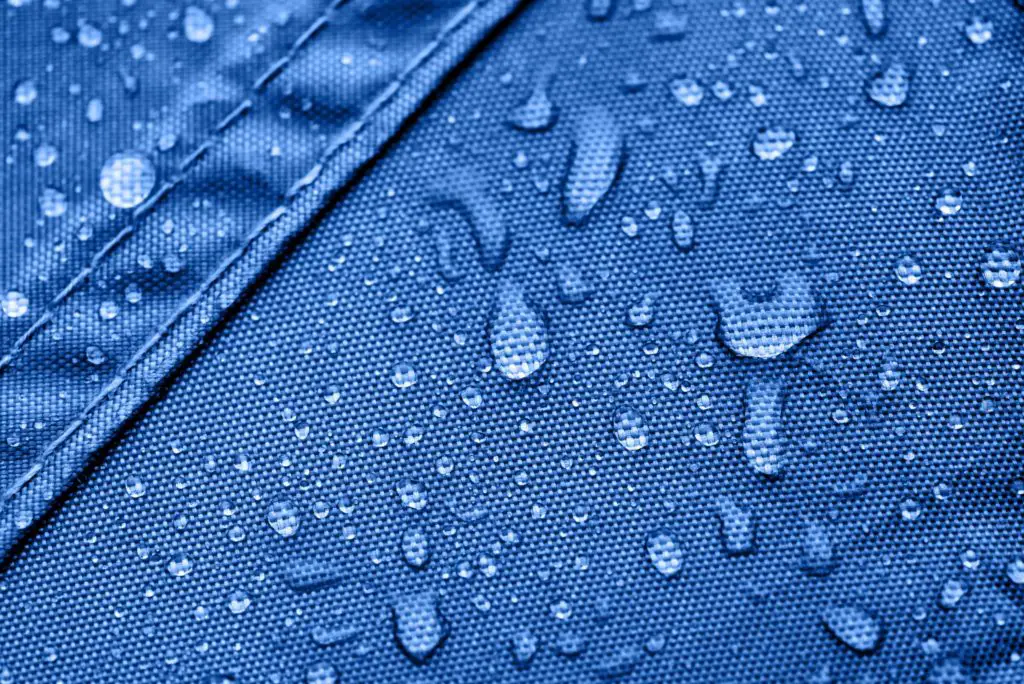
For instance, you can notice condensation on the bathroom mirror when you take a hot shower, droplets forming on your car, or inside your car windows.
In simple terms, think of condensation as the opposite of evaporation. In a tent, condensation can be a nightmare for any camper because it makes the tent cold and humid when vapor accumulated earlier becomes liquid.
This can also be a problem during summer camping since increased humidity will impact your body’s cooling capacity (understand the relationship between humidity and temperature in this article).
Why does condensation happen in tents, and why is it bad?
Did you know that a person can exhale up to 1L of water overnight?
If you are camping in a group of 4, this might introduce 4L of water inside your tent. And, what happens with this bucket of H2O?
Well, it has a high chance of condensation if there is not enough air circulation inside your tent. In a tent, condensation forms when humid air comes in contact with a cold surface like a tent’s interior walls or roof.
Just like when you take a shower and the steam makes the bathroom mirror wet, it is the same process. Steam, which is water vapor in gaseous form, is cooled when it hits the mirror, converting it to water droplets that cover the mirror. The similar process occurs inside tents.
Some factors that cause condensation in a tent include are shown below.
Humans and Pets
Every time you breathe, you produce water vapours. As discussed above, a person can exhale up to 1L of water per night. Imagine you have a family-sized tent with multiple campers and a dog inside!
Cooking inside your tent
If you have been inside a kitchen, you know cooking can create a damp atmosphere. And without proper ventilation, water vapours turn to moisture.
When it comes to camping, the best way to avoid the vapours is to cook outside. You can set up a camping kitchen outside. If you intend to use a stove inside your tent, read our guide on how to do it.
Poor Campsite selection
This is a factor many campers don’t pay attention to, but it later affects them. Before setting up your tent, check the weather forecast for your campsite if you want to have a condensation-free camping experience.
All in all, condensation is a natural process with all tents, no matter their fabric. Even though canvas tents have better breathability, you can still have droplet formation inside when using these models.
The truth is tent condensation can happen to anyone and any time of the year – it happens both in summer and winter. It is one of the unavoidable consequences of backpacking or camping with a tent, but there are ways you can deal with it (we will explain below – keep reading).
Tent condensation has many drawbacks, such as creating a musty and dump environment, favours mould growth, potentially affecting any electronic devices that you might have in your tent and increasing respiratory problems (watch out asthmatics).
Will a heater stop condensation in my tent?
Starting with gas
heaters, they are the best to have if you camp in an area with no electricity. You should be
aware that gas heaters release moisture in the air when burning and can release
1L of steam per hour, and the humidity rests on the tent’s walls, increasing
and causing condensation rates at night.
Alternatively, you
can switch to electric
tent heaters that provide clean energy. The electric versions do not cause moisture
build-up, and they work very well. However, if you are camping in high humidity
conditions and plenty of water is embedded in the air, your electric heater
will entice condensation.
The point is that gas heaters (or kerosene heaters) will increase the chances of tent condensation by adding more steam to the air. Electric heaters do not release water through their heating mechanisms but might create condensation when camping in very wet conditions.
How to prevent tent condensation in a tent?
Condensation is sometimes inevitable, but there are tips you can use to eliminate the problem. To reduce condensation in your tent, you should:
- Avoid cooking inside your tent to avoid increasing the humidity level. I know it is tempting to cook inside your tent, especially at night, but you should avoid it
- You should try setting your tent under trees because. Under trees, condensation happens on top of trees, instead of inside your tent, plus there will be an increased airflow.
- Ventilate your tent by leaving the vestibule opening or removing the rainfly so that humid air can escape. Any opening in your tent will increase air movement and allow more wind to come in, which decreases condensation risks
- Remove wet clothes and shoes from the tent. If you must keep the clothes or shoes inside, store them in a dry bag to avoid evaporation.
- Setting your tent in a humid area has advantages and disadvantages. The benefits are seen during the day when it is hot, while the disadvantages will kick in at night. Avoid camping near lakes, streams, ponds, or wet areas with higher humidity.
- If possible, avoid settling at a low point in the landscape where humid air pools at night.
FAQ
How humid is to humid for camping?
Overall, the human body is comfort with humidity leves between 30 and 60%. Outside this range, you might face issues, such as respiratory problems and anomalies in blood circulation.
How can you tell how humid it is?
For your convenience, we recommend using an electronic device, such as Hygrometer Thermometer. There are also devices that can be connected to your phone.
Conclusion
Tent condensation is annoying and can cause numerous problems for your health and camping gear.
Unfortunately, gas heaters might increase condensation rates since they release steam in the air from the combustion process. On the other hand, electric heaters will suit you better since they do not exhale any water while warming up your tent.
Regardless of the type of heater used in your tent, consider the following measures to decrease and eliminate tent condensation:
- Avoid cooking inside your tent
- Ensure there is enough air circulation
- Remove wet clothes and shoes from your shelter.



